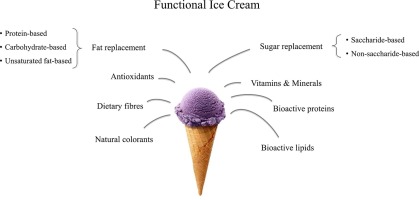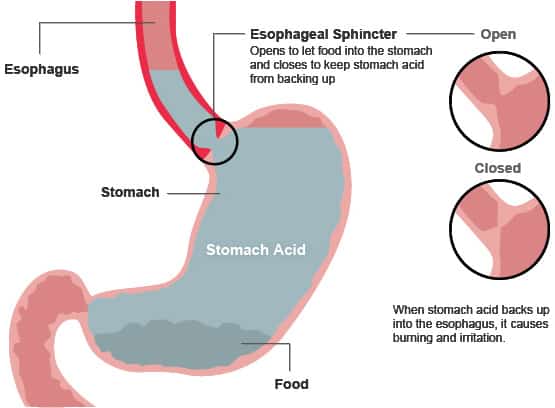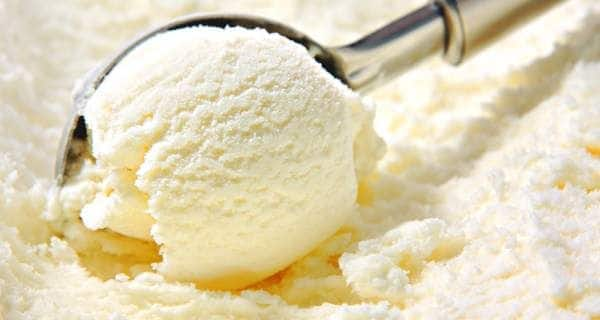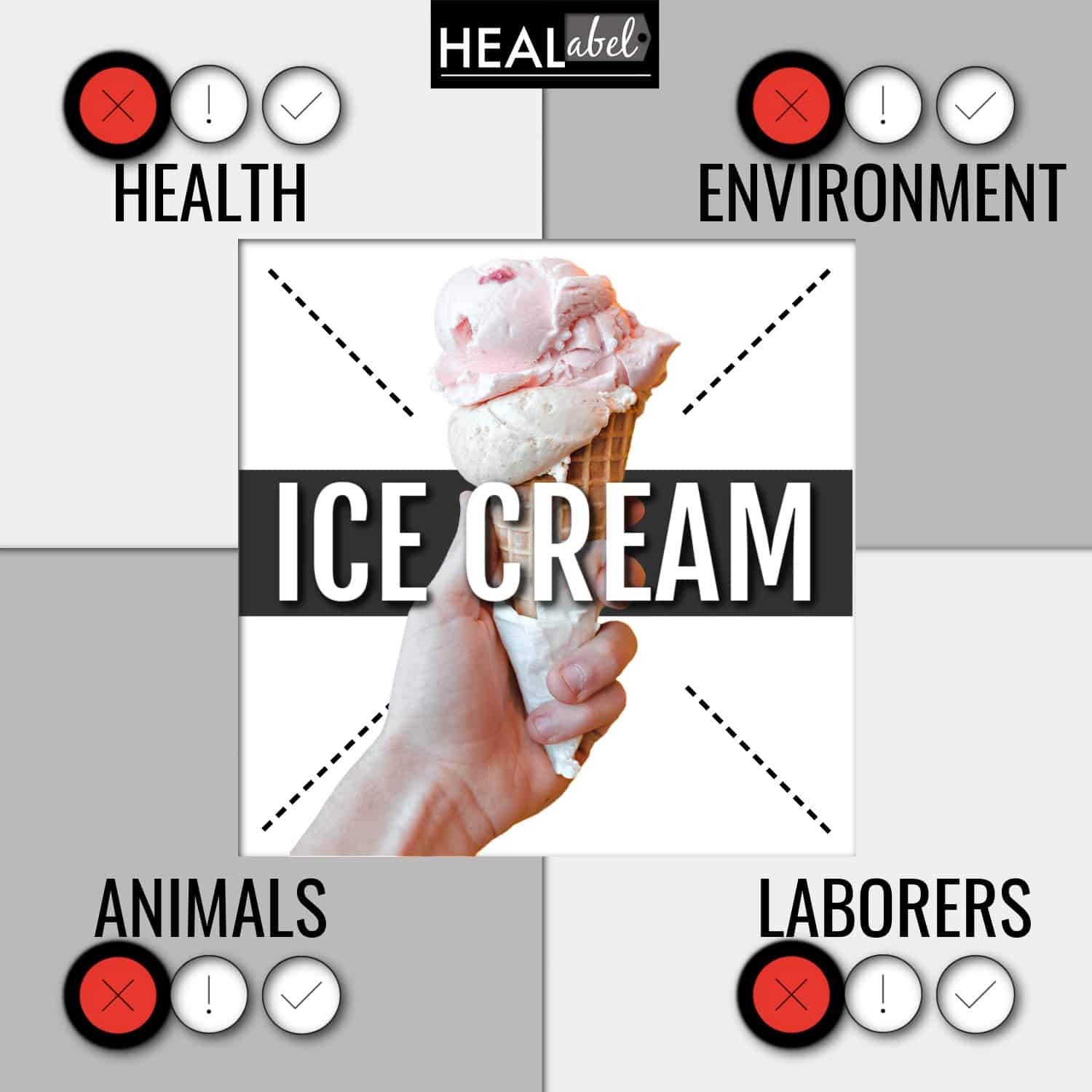Introduction

Ice cream is a popular dessert that many people enjoy, especially during the hot summer months. However, for some individuals, consuming ice cream can lead to discomfort and heartburn. Heartburn is a common symptom that occurs when stomach acid rises up into the esophagus, causing a burning sensation in the chest. In this article, we will explore the impact of ice cream on digestion and its potential to trigger heartburn. By understanding the factors at play, individuals can make informed choices to manage and prevent heartburn while still enjoying their favorite frozen treat.
Overview Of The Topic And Why It’s Important
Ice cream is a popular dessert enjoyed by many, but it can also cause discomfort and heartburn for some individuals. Understanding the impact of ice cream on digestion and its potential to trigger heartburn is important to make informed choices about our diet and manage our digestive health. By exploring the factors involved and learning strategies to prevent heartburn while still enjoying ice cream, individuals can maintain their digestive comfort and overall well-being.
Common Symptoms Of Heartburn
Common symptoms of heartburn include a burning sensation or discomfort in the chest, often referred to as “acid indigestion.” This sensation may sometimes be accompanied by a sour or bitter taste in the mouth, regurgitation of stomach acid, and a feeling of fullness or heaviness in the chest. These symptoms typically occur after eating or lying down, and they may worsen at night or when bending over. It is important to note that not everyone experiences these symptoms, and they can vary in severity from person to person.
Understanding Heartburn And Its Causes

Heartburn is a common condition characterized by a burning sensation or discomfort in the chest, often accompanied by a sour taste in the mouth. It occurs when stomach acid flows back into the esophagus, irritating the lining. Several factors can contribute to heartburn, including certain foods, obesity, pregnancy, smoking, and certain medications. The lower esophageal sphincter (LES), a muscle that normally prevents acid reflux, may also weaken, leading to increased episodes of heartburn. It is important to understand these causes in order to effectively manage and prevent heartburn.
What Is Heartburn?
Heartburn is a common condition characterized by a burning sensation or discomfort in the chest, often accompanied by a sour taste in the mouth. It occurs when stomach acid flows back into the esophagus, irritating the lining. Several factors can contribute to heartburn, including certain foods, obesity, pregnancy, smoking, and certain medications. The lower esophageal sphincter (LES), a muscle that normally prevents acid reflux, may also weaken, leading to increased episodes of heartburn. It is important to understand these causes in order to effectively manage and prevent heartburn. [7]
Factors That Can Contribute To Heartburn
Several factors can contribute to heartburn. These include certain foods and beverages such as spicy or fatty foods, citrus fruits, tomatoes, onions, garlic, chocolate, coffee, alcohol, and carbonated drinks. Other factors include obesity, pregnancy, smoking, and certain medications, such as NSAIDs and calcium channel blockers. Additionally, a weakened lower esophageal sphincter (LES) can also lead to increased episodes of heartburn. It’s important to be aware of these contributing factors in order to manage and prevent heartburn effectively. [7][10]
Role Of Stomach Acid In Heartburn

Stomach acid plays a significant role in the development of heartburn. When the lower esophageal sphincter (LES) weakens or relaxes, stomach acid can flow back into the esophagus, causing irritation and inflammation. This acidic fluid can irritate the lining of the esophagus, leading to the characteristic burning sensation of heartburn. The acid can also trigger the production of excessive mucus, which further exacerbates the symptoms. Managing stomach acid levels is crucial in preventing and alleviating heartburn. [11]
The Impact Of Ice Cream On Digestion
Ice cream can have a significant impact on digestion. The high fat content in ice cream can slow down the digestion process, leading to a feeling of heaviness and discomfort. Additionally, the sugar content in ice cream can cause spikes in blood sugar levels, which can disrupt digestion. The combination of these factors can increase the likelihood of experiencing heartburn and digestive problems after consuming ice cream. It is important to be mindful of portion sizes and choose healthier alternatives to minimize the impact on digestion. [13] [14]
How Does Ice Cream Affect Digestion?
When consumed, ice cream can have a significant impact on the digestive process. The high fat content in ice cream slows down digestion, leading to feelings of heaviness and discomfort. Additionally, the sugar in ice cream can cause blood sugar spikes, disrupting digestion. These factors increase the likelihood of experiencing heartburn and digestive problems. It is important to be mindful of portion sizes and consider healthier alternatives to minimize the impact on digestion. [15] [16]
Components In Ice Cream That Can Trigger Heartburn

Ice cream contains several components that can contribute to heartburn. Firstly, the high fat content in ice cream can slow down digestion and delay the emptying of the stomach, leading to a higher likelihood of experiencing heartburn. Additionally, the sugar content in ice cream can cause blood sugar spikes, which can disrupt digestion and trigger heartburn. It is important to be mindful of these components when consuming ice cream, especially if you are prone to heartburn. [17] [18]
Nutritional Factors That Influence Heartburn
Certain nutritional factors can contribute to the likelihood of experiencing heartburn after consuming ice cream. Firstly, high-fat foods like ice cream can relax the lower esophageal sphincter (LES), a valve that keeps stomach acid from flowing back into the esophagus. This can increase the risk of acid reflux and heartburn. Additionally, spicy or acidic flavorings and toppings commonly found in ice cream can further irritate the esophagus and trigger heartburn. Being mindful of these nutritional factors can help individuals prone to heartburn make informed choices when enjoying ice cream. [19]
Managing Heartburn While Enjoying Ice Cream
For individuals who enjoy ice cream but are prone to heartburn, there are several tips to help manage and minimize discomfort. First, it’s important to be mindful of portion sizes and consume ice cream in moderation. Additionally, avoiding eating ice cream right before bedtime can reduce the risk of heartburn. Lastly, considering alternative options such as low-fat or low-acid ice creams, as well as non-dairy alternatives, can be beneficial for those with sensitive stomachs. By implementing these strategies, individuals can still enjoy ice cream while reducing the likelihood of heartburn episodes.
Tips To Prevent Heartburn When Consuming Ice Cream

- Choose low-fat or low-acid ice cream options: These variations have less fat and fewer acidic ingredients, which can help reduce the likelihood of heartburn.
- Opt for smaller portions: Enjoying ice cream in moderation can minimize the impact on your digestive system and lower the risk of heartburn.
- Take your time while eating: Eating slowly and savoring each bite can aid in digestion and reduce the chances of heartburn.
- Avoid eating ice cream right before bed: Giving your body ample time to digest the ice cream before lying down can help prevent nighttime heartburn.
- Stay hydrated: Drinking plenty of water while enjoying ice cream can help neutralize stomach acids and alleviate heartburn symptoms.
Alternative Options For Individuals Prone To Heartburn
For individuals prone to heartburn, there are alternative options to enjoy a sweet treat without triggering symptoms. They can opt for sorbet or frozen yogurt, which are lower in fat and acid compared to traditional ice cream. Non-dairy alternatives like almond or coconut milk-based ice creams can also be a good option. Additionally, individuals can experiment with homemade fruit popsicles or frozen fruit for a refreshing and heartburn-free dessert. Remember to choose options that work best for your body and preferences. [26]
Portion Control And Timing Of Ice Cream Consumption
Portion control plays a crucial role in managing heartburn while enjoying ice cream. It is important to limit the portion size of ice cream to avoid overloading the stomach and triggering heartburn. Additionally, it is advisable to consume ice cream earlier in the day or as a standalone dessert, rather than right before bed, to allow enough time for digestion before lying down. Being mindful of portion sizes and timing can help individuals prone to heartburn enjoy ice cream without experiencing discomfort. [27]
Healthy Ice Cream Alternatives

Healthy Ice Cream Alternatives: For individuals looking for healthier options, there are several alternatives to traditional ice cream. Low-fat and low-acid ice cream varieties offer a lighter option with reduced fat content and less potential for triggering heartburn. Non-dairy alternatives, such as almond milk or coconut milk ice creams, are also available for those who are lactose intolerant or prefer plant-based options. These alternatives can still provide a satisfying and enjoyable ice cream experience while minimizing the risk of heartburn. [30]
Introduction To Healthier Ice Cream Options
When it comes to enjoying ice cream without the risk of heartburn, there are several healthier options available. Low-fat and low-acid ice creams provide a lighter alternative with reduced fat content and less potential for triggering indigestion. Additionally, non-dairy alternatives like almond milk or coconut milk ice creams offer a plant-based option for those who are lactose intolerant or prefer dairy-free options. These alternatives still provide a satisfying and enjoyable ice cream experience while minimizing the risk of heartburn. (Source: FlavorFrost)
Low-fat And Low-acid Ice Creams
Low-fat and low-acid ice creams are a healthier option for individuals prone to heartburn. These ice creams have reduced fat content, which can help minimize the risk of triggering indigestion. They also have lower levels of acidity, making them gentler on the stomach. By opting for low-fat and low-acid ice creams, individuals can still enjoy the creamy and indulgent flavors they love without sacrificing their digestive comfort.
Non-dairy And Lactose-free Alternatives

Non-dairy and lactose-free alternatives are a great option for individuals who cannot tolerate dairy or are looking for alternative options to traditional ice cream. These alternatives are typically made from plant-based ingredients such as almond milk, coconut milk, or soy milk. They offer a creamy and indulgent texture without the lactose that can trigger heartburn. Additionally, these alternatives often come in a variety of flavors and are widely available in supermarkets and specialty stores.
Conclusion
In conclusion, while ice cream can be a delicious treat, it can also have a negative impact on digestion, particularly for individuals prone to heartburn. The high-fat and sugar content in ice cream can slow digestion, increase acid reflux, and cause discomfort. However, by practicing portion control, choosing healthier alternatives, and listening to your body’s response, it is possible to enjoy ice cream without worsening heartburn symptoms. It is important to consult with a healthcare professional for personalized advice and recommendations.
Final Thoughts On The Relationship Between Ice Cream And Heartburn
In conclusion, the relationship between ice cream and heartburn is evident. Ice cream’s high-fat and sugar content can slow digestion and increase acid reflux, leading to discomfort and heartburn symptoms. However, it is possible to enjoy ice cream while minimizing these effects by practicing portion control and choosing healthier alternatives. It is important to listen to your body and consult with a healthcare professional for personalized advice. By being mindful of your choices, you can still indulge in ice cream without worsening heartburn episodes. [39][40]
Importance Of Listening To Your Body’s Response

It is important to listen to your body’s response when consuming ice cream or any other food. Each person reacts differently to different foods, and paying attention to how your body feels after eating can help you identify triggers for heartburn. If you notice that ice cream consistently causes discomfort or worsens your heartburn symptoms, it may be necessary to limit or avoid its consumption. By tuning in to your body and making adjustments accordingly, you can better manage and prevent heartburn.
Advice For Individuals With Frequent Heartburn Episodes
For individuals experiencing frequent heartburn episodes, it is important to consult with a healthcare professional for an accurate diagnosis and personalized treatment plan. In addition to following medical advice, there are several lifestyle modifications that can help manage heartburn, including:
- Avoiding trigger foods: Identify and avoid foods that trigger heartburn symptoms, such as high-fat and spicy foods.
- Eating smaller, more frequent meals: Opt for smaller meals throughout the day to reduce the pressure on the stomach.
- Maintaining a healthy weight: Excess weight can put pressure on the stomach, leading to heartburn. Losing weight, if necessary, may help alleviate symptoms.
- Elevating the head while sleeping: Elevating the head of the bed by using pillows or a wedge can help prevent stomach acid from refluxing into the esophagus while sleeping.
- Quitting smoking: Smoking can weaken the lower esophageal sphincter, allowing stomach acid to flow back up into the esophagus. Quitting smoking may improve heartburn symptoms.
Remember, individual experiences may vary, and it is essential to work with a healthcare professional to develop a customized plan for managing frequent heartburn episodes.
Frequently Asked Questions: Can Ice Cream Cause Heartburn?
Q1: Can eating ice cream really cause heartburn?
A: Yes, it is possible for ice cream to cause heartburn in some individuals. However, it may not affect everyone in the same way.
Q2: Why does ice cream sometimes lead to heartburn?
A: Ice cream can trigger heartburn due to a few reasons. Firstly, it contains high levels of fat, which slow down the digestion process and can increase the likelihood of acid reflux. Secondly, ice cream is often consumed in large amounts, leading to a distended stomach that can push acid up the esophagus.
Q3: What are the symptoms of ice cream-induced heartburn?
A: Common symptoms of heartburn include a burning sensation in the chest, a sour taste in the mouth, regurgitation of stomach acid, and difficulty swallowing.
Q4: Does the type of ice cream matter?
A: Yes, the type of ice cream can have an impact. Full-fat ice creams, rich in cream and sugar, are more likely to trigger heartburn than low-fat or non-dairy alternatives.
Q5: Can lactose intolerance contribute to ice cream-related heartburn?
A: Lactose intolerance, characterized by the inability to digest lactose (a sugar found in milk-based products like ice cream), can lead to symptoms that mimic heartburn. If you suspect lactose intolerance, it may be worth exploring alternative ice cream options.
Q6: How can I prevent ice cream-related heartburn?
A: There are a few strategies you can try to minimize the chances of getting heartburn from ice cream:
- Opt for low-fat or non-dairy alternatives.
- Eat smaller portions.
- Avoid consuming ice cream right before bedtime.
- Stay upright for at least an hour after eating ice cream.
- Consider taking antacids or acid reducers before indulging in ice cream if you frequently experience heartburn.
Q7: Can I still enjoy ice cream if I am prone to heartburn?
A: Yes, you can still enjoy ice cream even if you are prone to heartburn. However, you may need to be mindful of the portion size, opt for alternatives with lower fat content, and pay attention to your body’s response to different ice cream types.
It’s important to note that if you experience frequent or severe heartburn, it’s advisable to consult a healthcare professional for an accurate diagnosis and personalized advice.

Soo Good Snack Bar is an upscale snack shop located at 1309 Hermosa Ave. in Hermosa Beach, CA. This family-owned business is the newest addition to the community of Hermosa, and our goal is to create a fun and inviting place where families can enjoy delicious snack foods that fit the beach lifestyle. Check us out today and help yourself to happiness.
